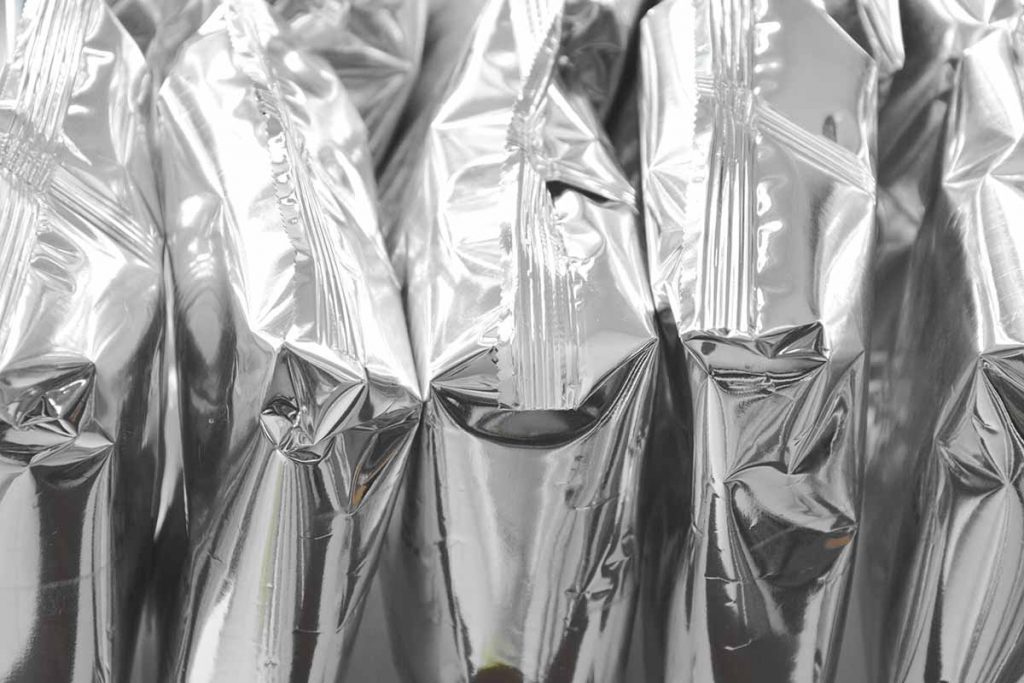
Overall, worldwide recycling rates for both single-polymer and multi-material plastic flexible packaging is negligible. | pedphoto36p/Shutterstock
Single-use flexible plastic packaging has been the fastest-growing packaging type. The Ellen MacArthur Foundation says the opposite should be happening.
“Eliminating and innovating away from single-use flexible packaging must be the first and foremost part of any flexible packaging strategy,” according to the report, “Flexible packaging: The urgent actions needed to deliver circular economy solutions.”
The document suggests a number of urgent actions that the researchers believe need to happen to reduce flexible packaging waste. It acknowledges some single-use flexible packaging can’t be eliminated without unintended consequences. In those cases, the Ellen MacArthur Foundation recommended either switching from using conventional plastics to using paper or compostable plastics or drastically scaling up recycling systems.
“Either way, what is clear is that unless simultaneous, unprecedented efforts across packaging design, infrastructure, and policy are begun immediately – efforts that push far beyond the level of activity we are currently seeing – the circulation of flexible packaging in practice and at scale is unlikely to happen in the foreseeable future,” the report said.
The researchers noted flexible plastic packaging has grown by about 5% annually from 2019 to 2020, making it the fastest-growing packaging type. Meanwhile, flexibles account for a disproportionate share of leakage into the oceans, they said.
The flexible packaging recycling that is occurring is mostly limited to recycling pure PE films into products such as lawn furniture or garbage bags, the report states. But overall, worldwide recycling rates for both single-polymer and multi-material plastic flexible packaging is negligible.
The report, part of the Ellen MacArthur Foundation’s New Plastics Economy initiative, was produced in collaboration with an expert panel consisting of over 100 organizations.
More stories about research
- RIT researchers develop AI-based textile recycling system
- Researchers: Effective plastic treaty requires production cuts
- Research, programs improve film recycling access



